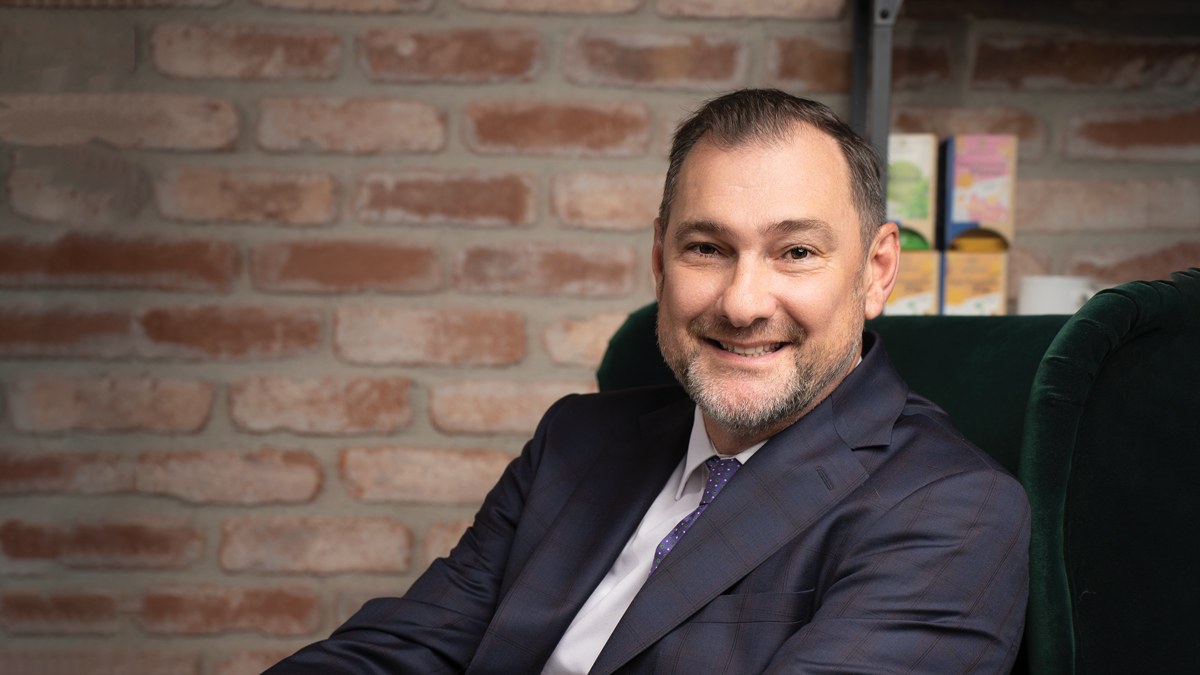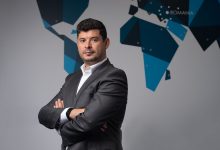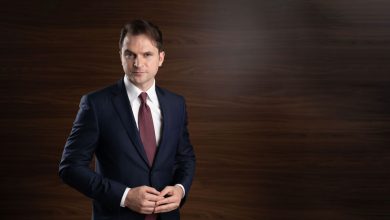Daniel Apostol, Director General of Oil and Gas Employers’ Federation: Building ‘The Future of Energy’
Daniel Apostol is the Director General of the Romanian Oil and Gas Employers’ Federation. Expert in strategic communication, public relations and public affairs, experienced economic journalist, communication and marketing consultant, Daniel Apostol is also Vice President of ASPES, Founder of Sustainable Romania, Editorial Director of ‘Economistul’ magazine and member of the Energy and Economy Association.
The Oil and Gas Employers Federation (FPPG) includes companies covering more than 98% of domestic oil and gas production, oil and gas transmission, gas supply, as well as a significant part of refining, marketing, and distribution of petroleum products in Romania.
One of the members’ common goals, discussed by Daniel Apostol – Oil and Gas Employers’ Federation (FPPG) Director General, is to decarbonise the energy sector by adopting innovative technologies.
Dear Mr. Apostol, you have a background in engineering sciences. What specifically led you to a career in this field?
Daniel Apostol: It is true that I have a degree in engineering, specialising in Mechatronics. But it is equally true and correct to point out that I have never practiced engineering.
Since my first year of college, I had the chance to be part of a team of senior students who built and launched the first radio station in Suceava, my hometown. That’s where my orientation towards journalism began. Today I look back fondly at over 30 years of career; 25 years I dedicated to specialising in economic journalism, which brought me very close to the business world, both entrepreneurial and corporate, to the problems it faced throughout the thirty years of post-communism.
I have also acquired expertise in strategic communication. Over time, I have founded and launched several editorial and communication projects for the business environment, such as the ‘Sustainable Romania’ platform.
In 2013 I was given the opportunity to discover the challenges and problems of the Romanian oil and gas industry, an industry that has literally made global history, putting the Romanian energy sector in the golden pages of oil exploration. For several years I have been the secretary general of ROPEPCA and I hold the certificate No. 1 as a member of the Energy and Economy Association founded by the illustrious professor and energy expert Ionut Purica.
Together with Transgaz teams, we have covered the entire national route of the BRUA gas pipeline, being involved in the public debate project in all the administrative-territorial units crossed by this gas transmission pipeline.
I worked with the Oil and Gas Employers’ Federation from the position of director for external affairs (including the Federation’s strategic communication and media relations).
I would also like to mention here one personal aspect: my mentor was Ambassador Mihnea Constantinescu, to whom I owe my involvement in certain projects in the energy sector and building an expertise on public affairs issues in the oil and gas sector.
You took over the role of Director General of FPPG in September 2023, a crucial moment for the Federation, given the role of low carbon technologies in facilitating energy transition and achieving Romania’s environmental objectives. How does the Federation engage in public-private dialogue during this complex and challenging process?
Daniel Apostol: First of all, I would like to thank the board members and my colleagues at FPPG who invited me to return to the Federation after 3 years as head of the Financial Supervisory Authority’s (FSA) Communication and Financial Education Directorate.
Indeed, the moment of taking office as Director General of FPPG coincides with a period of particular importance. The whole European (and global, of course) economy is undergoing a transformation as a result of efforts to tackle climate change and assume the transition to highly ambitious environmental targets.
In this context, the role of the Federation is complex: on the one hand, a major role is to create a strong forum of the main energy producers in Romania; a solid forum, based on mutual trust and on the assumption of common development objectives and involvement in the sustainable economic growth of the country, while respecting the national and European legislative framework.
In this respect, the driver of the Oil and Gas Employers’ Federation’s activity is to strengthen a unified position regarding the implementation of best practices in the sector it represents.
We promote the principles of free competition, fairness among members and the performance of the Romanian business environment by perfecting the methods of understanding and communicating the constitutive fundamentals of the industry.
On the other hand, the Federation is a dialogue partner of all relevant authorities of the Romanian state, providing expertise and points of view necessary for the most correct elaboration of the regulatory framework governing the development of the energy sector.
The Federation is also a spokesperson for the energy sector, being an active partner in social dialogue at both national and sectoral level.
Through continuous analysis and debate of the regulations in the field, we aim to support and effectively represent the freely expressed interests of the representatives of the energy production sector.
As we publicly state on every occasion, the actions undertaken by the FPPG are a means of creating cohesion between the private and public sectors, of supporting communication between the entities involved in the fields of energy, oil, gas, and energy mining, for the best possible functioning of all parties involved.

Specifically, what are your responsibilities under this mandate and what obligations do you assume for the benefit of the industrial sector you represent?
Daniel Apostol: My mandate is one of strengthening and developing the Federation and increasing the scope of the role played by this employers’ federation at national, regional, and European level, in the midst of economic transformation, energy transition and the adoption of innovative technologies.
FPPG’s recently launched flagship platform is entitled ‘The Future of Energy’, a phrase that expresses very concisely the Federation’s strategic direction for the coming years; we are very concerned with the energy transition process and how the energy sector of the future is driving global economic transformation. We are concerned with the adoption of new technologies that will contribute, in addition to the exploitation of national natural gas and oil resources, to ensuring energy security in Romania and at regional level.
We have identified 10 main pillars that will support the energy sector in the future, including both established technologies and promising pioneering initiatives. Each of these involves both opportunities and challenges, which is why honest and comprehensive promotion among Romanian citizens is necessary to highlight them. An informed and confident public is an important step towards a stronger, more innovative, and growing economy.
At the same time, my mandate also aims to make the FPPG a trusted partner at regional level for all relevant stakeholders.
Thus, my role is to be a good ambassador for the industry, both in relations between the federation’s members and in the federation’s relations with dialogue partners at the level of national state institutions and bodies, as well as the European Union.
What are the biggest challenges and opportunities for Romania during the energy transition?
Daniel Apostol: I believe there are four factors that drive the energy transition: realistic, economical, secure, and sustainable.
But, as one energy company leader pointed out, these four factors are also the reason why the energy transition will not happen overnight.
Although from the point of view of European public policymaking, the energy transition is intended to be completed “as soon as possible”, with extremely ambitious deadlines, in realistic terms “sudden change takes a long time”. By this I mean that economic transformation designed to achieve the highly ambitious environmental objectives is proving to be a process that needs to be carried out with wisdom and balance rather than speed and ignorance of the realities on the ground.
The FPPG members, Romanian energy producers, are forced by context to invest equally in conventional, renewable, and new energy technologies to meet today’s energy demands and plan for the future.
Today, around the world, we have energy companies and energy companies of the future.
The FPPG proudly announces that it is a Federation of the energy producers of the future, without casting aside historical attributes and capitalising on the resources of the present.
Romania’s biggest challenge is to define wisely its strategic objectives for the next 20 years, so that it can make the most of the special attributes it has in particular compared to the other EU countries.
Romania must play a major role in ensuring energy security at regional and European level, precisely because it has unparalleled natural resources at Member State level and because it is in an area of strong geopolitical tensions that have a considerable economic impact.
Romania must have a much stronger voice in European structures and its views must be benchmarks in EU public policies that will govern the energy transition in the coming years.
Our objective is to support the most thorough understanding of the energy transition, in terms of technical, economic, social, and environmental implications, highlighting Romania’s attributes and particularities.

Talking about the future of energy, subsumed by the energy transition, you referred to Romania’s particularities in terms of energy mix. How are our country’s attributes of uniqueness viewed in the European forum, compared to, let’s say, other EU member states?
Daniel Apostol: To paraphrase a famous proverb, he who does not know his past cannot make the best of his present and future, for it is from the past that we learn.
It’s all about historical heritage. In 1857, Wallachia became the first country in the world with industrial crude oil production, putting into operation the first refinery (Ploiesti) and the first city lit by oil (Bucharest). Romania has built a tradition in developing the oil and gas sector and has developed real expertise in the field.
Then, the present shows us that Romania also has (still) natural resources that would allow it, from its position as the main oil producer in the EU, to benefit from these resources to ensure a fair transition towards achieving decarbonisation targets.
Achieving an efficient, reformed energy system, aligned with environmental objectives, but the result of a fair process of economic, technological, and social transformation, must be a goal of all stakeholders and is the challenge of public policies, system operators and society as a whole.
What do you consider to be the most insurmountable obstacles related to the European Green Deal Industrial Plan facing Romania?
Daniel Apostol: I think we are faced with the need for a better understanding of the national and regional geopolitical context.
Some of the European regulatory directions attributed to the Green Deal or derived from it strictly constrain the Romanian energy sector, raising significant barriers to the development of the domestic economy.
Romania is overwhelmed by ‘green’ legislation that disproportionately burdens it, limiting its chances of using its own natural resources in the natural process of energy transition.
We need to understand that the adoption of new technologies aimed at making the energy sector as ‘green’ as possible is neither simple nor affordable: it requires massive investment in pioneering areas, it requires legislation that favours these investments, it requires vocational retraining and significant investment in transforming the workforce in line with the future of energy, and it requires very good and clear explanation and public communication, aimed at making these technologies properly known, so that society as a whole and the communities concerned are partners and beneficiaries of these projects.
What impact will the European legislative framework have on the Romanian energy sector?
Daniel Apostol: European legislation governs the whole energy transition process and involves adaptation, alignment, and adoption in national legislation.
What is important is that the way the EU conducts the Community’s energy transition lawmaking process is balanced, non-discriminatory, delivering equitable benefits at reasonable and bearable costs to the citizens of all Member States.
In your opinion, what solutions are there to encourage investments in the Romanian energy sector, despite all the mentioned hurdles?
Daniel Apostol: It is the Romanian state that has the power to favour and encourage investments in the energy sector. This is why the Romanian state must see the energy sector and its related companies as a real partner in Romania’s development, and not just a taxpayer captive to a regulatory system.
The state must look with sincere respect to those who contribute to the security of energy supply, who generate jobs, budget revenues and economic growth.
Through appropriate public policies, the state must contribute directly to increasing the volume of private investment and the development of the Romanian energy sector, which has real potential.
How will the adoption of innovative technologies contribute to the decarbonisation of the Romanian energy sector?
Daniel Apostol: As I said, we have built the Future of Energy platform, the umbrella under which we have identified 10 fundamental pillars of the energy transition in Romania, which contribute to stability and security of supply, with a focus on decarbonisation and significant reduction of polluting emissions.
The 10 pillars describe the current moment, but it is expected that as innovation enters the market and technology advances, we will see an increase thereof.
We are concerned about how these technologies will facilitate the process of combating climate change, but also increase the pace of economic and social development of the country.
What would ideally be the balancing equation for energy security in the interest of all market participants – producers, suppliers, consumers? Is this possible?
Daniel Apostol: Romania needs to be much more concerned about energy security, especially in the context of geopolitical developments in the vicinity.
I recall here what Energy Minister Sebastian Burduja said: “Romania faces an energy trilemma, with three goals that cannot always be achieved at the same time: Safe Romania, Green Romania and Competitive Romania.”
Therefore, the equation you refer to must basically solve the ministerial ‘trilemma’: the Romanian consumer must benefit from energy at the most affordable prices, with as little environmental pollution as possible and with maximum security of supply.
Plans for the future and strategic objectives for the immediate future…
Daniel Apostol: I invite you to stay close to the FPPG, to become part of ‘The Future of Energy’ with us and to contribute together to the transformation of the sector and the Federation with it.







